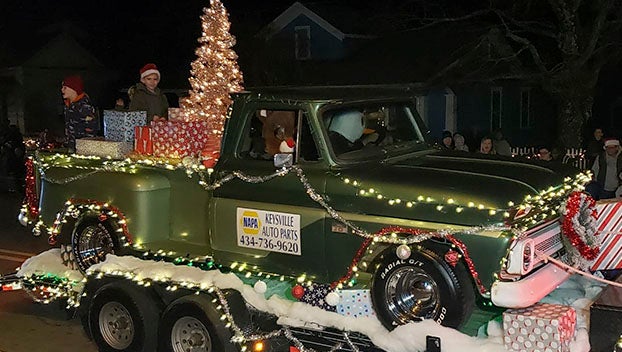Clark leaves legacy
Published 9:54 am Wednesday, November 21, 2018
Roy Linwood Clark, a celebrated country musician, television star, noted philanthropist and humanitarian, died at the age of 85 Thursday.
Similar to a pebble that falls in a pond and the impact that ripples through as a result, Clark’s presence is clearly felt throughout the United States, and the center arguably lies within Clark’s birthplace of Meherrin.
Clark was born in Meherrin on April 15, 1933, according to friend Jim Eanes. His parents were Hester and Lillian Clark.
Clark, who played guitar, banjo, mandolin and a host of other instruments, is known for being the host of “Hee Haw,” a country music based television show that was syndicated and aired from 1969 to 1997. Clark had several hit songs that included “Yesterday When I Was Young” and “Thank God and Greyhound.”
Clark is also a noted philanthropist in the Heart of Virginia and beyond, donating to Centra Southside Community Hospital’s emergency room and funding a scholarship in his name for music students at Longwood University, where he regularly performed.
Winning Queensberry, of Farmville, said Clark was his second cousin. Queensberry’s grandfather and Clark’s father were brothers, making Queensberry’s mother Clark’s first cousin. Queensberry said his mother, the late Betty Queensberry and Clark were friends.
Queensberry said Clark had been gone from his Meherrin birthplace for years when Queensberry was growing up, but Queensberry said Clark’s influence continued to ripple through his community, where bluegrass and country music was played on a regular basis.
Queensberry shared a story he heard that seemed particularly characteristic of Clark’s love of music at a young age. Queensberry said Clark played football in high school. Before a game, team members and family members said Clark was nowhere to be found, and went to look for him.
Queensberry said they found Clark underneath the stand, playing guitar for a crowd of people gathering around him.
Queensberry said he remembers visiting and seeing Clark’s shows as a teenager. One year, he had the opportunity to spend an hour with Clark during a family reunion at Goodwin Lake held at Green Bay.
“As great of a musician as he was, and people know him for that, I knew him as a humanitarian,” Queensberry said. “He was a guy that should be better known for philanthropic work.”
Queensberry said at the end of each show Clark hosted, Clark would encourage audience members to do something kind for another person.
“And he would say, don’t wait around for a thank you, you don’t need it,” Queensberry said.
“He always made it a point to say that at every show when he ended it.”
Queensberry said Clark had a knack of remembering those he came in contact with.
“Anybody that met him or knew him was struck with him,” Queensberry said about Clark. “And he always remembered you.”
Eanes, a close friend of Clark, said on social media that he had seen Clark everywhere from the Grand Ole Opry, to the set of “Hee Haw” to his parents’ home.
“I have been with him in almost every situation and never in all those years did I ever see him be anything but a Southern gentleman, kind, considerate, thoughtful and generous,” Eanes said. “He was a Christian and a true family man.”






